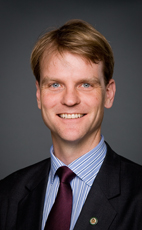Mr. Speaker, I thank the hon. member for Cape Breton—Canso for his continuing interest in this topic. I would first like to pay tribute to my parliamentary secretary, who is usually here at this time answering all manner of questions far better than I will be able to tonight. However, because this conversation began between the member opposite and me in question period, I am here to carry it on. It is an important one.
To give the short answer to the question, the reciprocity is there. In principle, we have opportunities, up to 60,000 places for young Canadians, in the 32 countries that are part of this international experience Canada program.
There have been times when we have achieved reciprocity, or virtually reciprocity, across the entire program. Those were times, to be very blunt, and the member well knows this, when the economic prospects, or the economic reality, in those countries in the job market was as strong as it was in Canada. Right now, it is not as strong in those countries as it is in Canada.
There is a disproportionately larger attraction for foreign students to come here than perhaps for Canadian students to go to some places.
We are looking at this program with a long-term perspective. I appeal to the member opposite to think of his own party's record in starting this program in 1951 and expanding it in 2003, for reasons that we all recognize are important.
Let us remind ourselves of the objectives of the Immigration and Refugee Protection Act: to permit Canada to pursue the maximum social, cultural, and economic benefits of immigration, not just the economic but the social and cultural benefits as well; to enrich and strengthen the social and cultural fabric of Canada; to reinforce minority language communities; and to promote visitors, students, and temporary workers for the purposes of trade, commerce, tourism, and international understanding.
These are among the goals of our act. I would submit that the international experience Canada program is among those components of our overall immigration program that does the most to achieve those objectives.
These are really not temporary foreign workers. These are students, young people, often with high skills, with an interest in Canada. Of those who self-identify and tell us about the employment they receive, 87% have high skills. They come on exchange. They create opportunities for Canadians to go abroad. As other economies recover, we are convinced that Canadians will seize those opportunities.
They also perform some very important additional purposes for immigration in Canada. Let us keep in mind that 44,000 of our new permanent residents in 2013 were people who were already here as temporary foreign workers, including as members of the international experience Canada program. They were people who proved themselves here, studied here, worked here, and chose to stay here.
Second, we are looking to reinforce francophone immigration outside of Quebec in this country. This is one of the objectives we have as a government. It is no surprise that France is the biggest player in international experience Canada, and France is also the biggest source of francophone immigrants outside of Canada. In 2013, over 600 stayed as immigrants in provinces and territories outside of Quebec.
Finally, there is the question of good will and building trade relationships. We are being told on all sides that we need to do more to ensure that companies, sectors, and governments have people with international experience and international connections to help us seize the opportunities afforded by CETA in Europe, free trade with Korea, the continuing opportunities of NAFTA, and new opportunities in Latin America.
That is why we have these agreements to bring young people precisely from those countries, for the most part, to Canada in large numbers, to keep them here as immigrants, and to maintain connections with them over their lifetimes for the benefit of our country and the reciprocal benefit of those countries as well.

